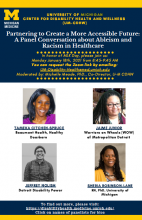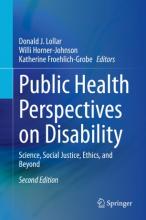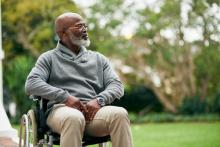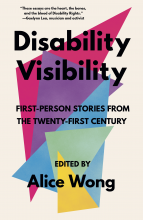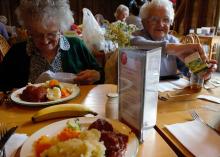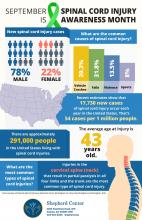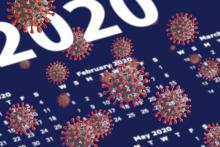New online presence will include discussions
The Investigating Disability factors and promoting Environmental Access for Healthy Living (IDEAL) Rehabilitation Research and Training Center (RRTC) at the University of Michigan has awarded grants to three southeast Michigan organizations to support their programming related to healthy aging for people with disabilities.
Once viewed as a pediatric condition, patients with cerebral palsy are aging, but the health care system is not prepared to offer them the care they need.
Please join us at 8:45 am on Monday, January 18th, Martin Luther King Jr. Day, to continue to explore issues at the intersection of disability and race and to discuss the role of healthcare and health care systems in partnering to create change.
Philippa Clarke, Clive D'Souza, and Michelle Meade contribute a chapter titled, “Aging with a Disability” in the recently published book, Public Health Perspectives on Disability: Science, Social Justice, Ethics and Beyond.
The IDEAL RRTC will be awarding community grants to community organizations operating from or providing services/programming to socio-economically marginalized communities in the greater Detroit and / or greater Flint Metro Areas.
This event is hosted by the University of Michigan Center for Disability Health and Wellness and co-sponsored by the U-M IDEAL RRTC and the U-M Council for Disability Concerns.
Older adults’ regular visits to eateries such as fast food restaurants and coffee shops may be as protective of cognitive health as marriage, according to new research from a U-M Institute for Social Research team including IDEAL RRTC faculty Philippa Clarke.
September is National Spinal Cord Injury Awareness Month. The IDEAL RRTC rounds up recent research from our faculty contributing to a growing body of knowledge on the long term health and wellbeing of SCI survivors.
A team of U-M disability researchers have developed a survey that will help others quantify the impact of the COVID-19 pandemic on the lives of people with disabilities.




